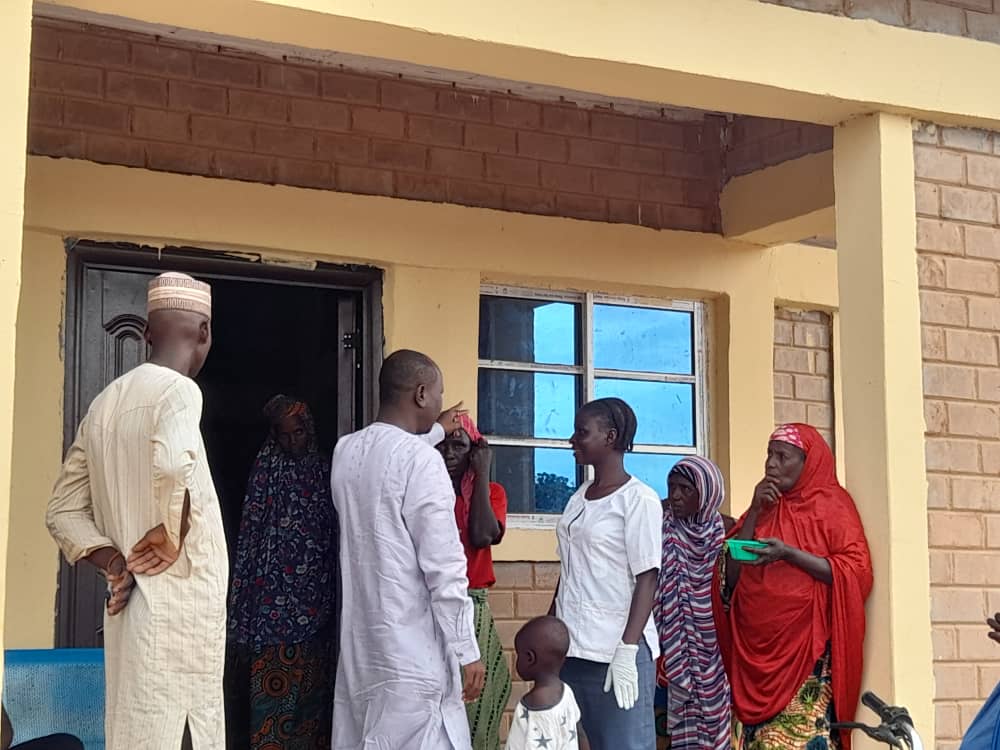14-15 Years of Insurgency in LCRs: Inside Stories, Present Realities of IDPs in Adamawa and Illnesses They Battle
By Vivian DANIEL,
“About 11 children are malnourished in this camp. The last time NEMA came to us was in May 2023. Please, help us tell SEMA (State Emergency Management Agency) and National Emergency Management Agency (NEMA) to remember us in the palliative distribution.
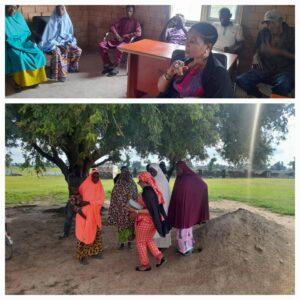
The UNHCR and IOM built these shelters. Provided us with water and toilets. NRC provided us with mattresses. UNICEF helps us with drugs and other medical equipment being used at the health centers. They don’t give us food. Most times when we go to the health centers in the camp, they don’t have drugs to give to us. Our people are suffering ‘apollo’, malaria, malnutrition, typhoid, vomiting, pneumonia, ulcer, etc.”
These were some of the words of those living in the IDP Camps in Adamawa, Yola State when visited by NEPTUNE PRIME.
Seeing the way and manner certain terminal illnesses like diabetes, hypertension, heart failure, kidney diseases, cancer of all types, etc. have continued to claim people’s lives in different parts of the world, how much more the impact of inadequate medical care and healthcare facilities to those in the Lake Chad Regions (LCRs) – the conflict-prone zones like Yola, Borno and/or Yobe State, those who fled their communities because of insurgency?!
Report Coverage and Aims
This report covers about 3 Local Government Areas, namely Girei LGA (Labondo – where the IDPs have a newly built estate and Damare camps); Fufore, Fufore LGA, and Malkohi, Yola South LGA.
The ‘Ultimate Aim’ of this report is to ascertain the present realities of the lives of IDPs; the illnesses they battle with and the type of medical care being accessed; the good and not-so-good activities of the government-owned and donor agencies and most importantly, to raise awareness for ‘more help’ for the IDPs in Adamawa State.
Brief History of Insurgency in Nigeria
According to research, Mohammed Yusuf, born on January 29, 1970, in Girgir village of Yobe State, started what is called Boko Haram in 2002 in the city of Maiduguri but its uprising began in July 2009 in Bauchi and quickly spread its members to other Northern States (Yobe, Borno, Adamawa, etc.) alongside the Lake Chad Regions (LCRs).
Since then, the group has carried out (and still carrying out) large-scale acts of violence with its first attack being against a Western country – where a vehicle with a bomb attacked the United Nations (UN) Headquarters in Abuja.
The insurgency of course has forced many people in their thousands and millions to flee their communities and, hence, are left with the only choice of living in other communities where they are largely not able to fend for themselves let alone access quality healthcare for illnesses as non-significant as malaria, diarrhea, typhoid, etc. as well as being seen as strangers and termed as Internally Displaced Persons (IDPs).
Disturbing Findings About the PHCs in Adamawa, Their Challenges, and Their Implication on the IDPs
NEPTUNE PRIME gathered that almost all the 5 Primary Healthcare Centres (PHCs) within the 3 Local Government Areas visited are in shambles and could only run laboratory tests mostly for malaria, and typhoid while some could add HBP checks and/or diabetes, which you have no idea how such tests/examinations are being carried out, as those attending to the people are ‘half-baked’ in their knowledge and abilities (not qualified to say it plainly). They also do not have sufficient drugs to care for these non-significant illnesses.
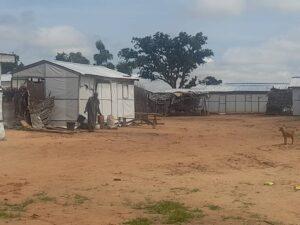
So, what becomes the state of the people’s health and their well-being alongside many in Nigeria whose first point of call when they are sick is usually the PHCs, knowing it is somewhat affordable, unlike the secondary and tertiary healthcare centers?
As much as one cannot help but appreciate the donor agencies who have been helping the Nigerian Government with its humanitarian crisis, most of the mini healthcare centers established/built by the donor agencies in these IDP camps have no major qualified health workers, as well, except volunteers in most of the cases and a handful of Community Health Workers (CHEWs) available in some locations to render skeletal services to the people.
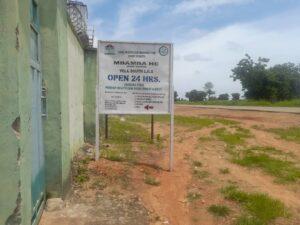
The truth is that being injected by a non-qualified health worker has a 90/95% potential risk of leading to other health complications in the future… It could cost one his or her life, hence the urgent need for qualified health workers to be deployed to Nigerian PHCs and basic laboratory equipment procured for them to be able to dictate and manage the illnesses as early as possible along with making training and retraining opportunities available to the health workers as well.
A reliable source told NEPTUNE PRIME that the Government should try to bring back cancer checks, screening, and programs for women. The health workers should be trained so they can identify such terminal illnesses at the early stages.
“If health workers are trained, the equipment to carry out their functions provided as well like major laboratory equipment to check for cervical cancer, do ‘pap smear’ etc. on women along with men who are usually down with prostate cancer, it will go a long way.”
At the Fufore, Malkohi, and Girei PHCs, NEPTUNE PRIME sources (names withheld), revealed that some of the minor health challenges being reported at these PHC centers are acute malnutrition, and other minor illnesses like malaria, typhoid, diarrhea, vomiting, pneumonia, ulcer, etc. alongside their efforts in educating the women on how to dictate whether or not they have signs for cancerous growths in any parts of their body.
Haggai, H, a lab technician said, “We have minor machines to check for illnesses like fever, typhoid, ulcer, etc. but do not have the equipment to check for breast cancer of any type. We have about 20 workers – menial workers (like CHEWs and volunteers), no doctor or nurse. “When the women come with cases of PV itching or discharge from their private parts, we simply refer them to the Federal Medical Centre (FMC). We don’t have RVS stripes (that is used for HIV screening) since 2022, he added.”
The Living Conditions of the IDPs – Their Present Realities, Activities of Government-owned and Donor Agencies
There are major cases of hunger leading to malnutrition which killed about 7 children towards the end of 2022 in some of the IDP camps as NEPTUNE PRIME findings reveal. Sadly, some of them have sold the mattresses provided for them to get what they would eat. For instance, there are about 350 households and 1500 people in general still living in Fufore while in Malkohi camp, Yola South LGA, there are about 71 households still living there and 380 persons in all to mention just a few. And those in Labondo camp who have the newly built estate are about 2,000 people.
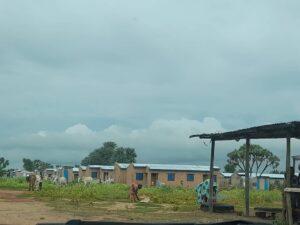
Noteworthy is that they have ‘shelters with tarpaulin and zinc’ provided for them by the UNHCR, IOM, NHF, and NRC as their logos are prominent on most of them, although the zinc used as roofing sheets is seriously leaking. However, it is believed that the donor agencies may have contracted insincere workers who used the fake zinc for these people.
According to a girl of about 19 years old who spoke to me in confidence, “International Committee of the Red Cross (ICRC) used to bring the women some sanitary pads. In the year 2023 they have come about 3 times and what they give us is usually enough to last us up until when they come again.”
It was equally revealed to NEPTUNE PRIME that the WHO takes care of pregnant and nursing mothers. But when the PHCs can’t manage any major cases, they would refer them to the Federal Medical Centre (FMC). The World Health Organisation (WHO) volunteers visit them frequently. They give some people who have malaria medicine. Although a healthcare center is also provided for us in some of the camps, there is not enough drug to take care of them and the health workers are not around always, especially, when some people have major challenges at night.
Nonetheless, Umar B (a resident in one of the camps) said, “Before, the National Emergency Management Agency (NEMA) used to come and give us food items every month, but they stopped coming frequently about 3 years ago. They come like 2/3 times yearly since then, and this year (2023), they came last in the month of Ramadan.
“About 11 children are malnourished in this camp as we speak because of hunger. The last and only time the National Emergency Management Agency (NEMA) came to us was in May 2023. Please, help us tell SEMA (State Emergency Management Agency) and NEMA to remember us in the palliative distribution.”
“We need food. We still need more mattresses to sleep on. We need help. We need mosquitoes’ nets. We heard the Government distributed nets to other people in the community but did not give us any, she added.”
Buba W. further said, “We go to the farm to work for people and are paid N500, N1,000 which is not enough for us to feed ourselves and our families. Some, when we are done working for them would disappear instead of paying us for the work we did. When we go to the healthcare centers around us even though they lack many drugs that we may need. Sometimes we are charged up to N5,000 or N6,000 to be attended to.
The NEMA Coordinator in Adamawa State, Mr Ladan Ayuba was contacted by NEPTUNE PRIME based on the issues raised by the Malkohi IDPs, specifically. He said, “Well, these people are not telling you the truth. We have given them food about 3 times. Last year, the North East Development Commission (NEDC) wrote to us that they wanted to take over the feeding of the IDPs. You must know that for over 7 years, the Government has been taking care of them. It would be a capital lie if they told you we gave them only 3kg of rice, beans, and corn to be shared among 12 persons. We wrote to the NEDC and they provided us with food items which we gave them about 25kg of rice, beans, etc. including non-food items like wrappers and perishable items. I am not surprised because those people in the IDPs are good with blackmail. The Govt is trying its best and cannot be indicted or blackmailed by the IDPs. Do not believe them. They are not honest with themselves also.
On what the major functions of NEMA are towards the people including the IDPs, Ladan Ayuba said, “We work hand-in-hand with other developmental partners (the donor agencies) to administer help to them since they came from Borno during the heat of the insurgency. The NEMA has been doing very well in terms of responding to the IDPs’ welfare. The issue of Shelter, it was done as a temporary thing, he added.”
Nonetheless, it was quite interesting and heartwarming to see that the people at the Damare IDP camp have a hall where there is an ongoing Entrepreneurship program.
But more shocking is that Gotel FM (GOTEL COMMUNICATION LTD.) Corporate Headquarters, which belongs to the former Vice President, Alhaji Atiku Abubakar, and the Adamawa Television Corporation are located in the same Girei LGA and a stone’s throw from the IDP camps and PHCs at Labondo and Damare.
New Findings/Research and Expert Views That Calls for Urgent Attention
A health researcher, Gabriel Oke of HPHR, spoke to NEPTUNE PRIME on the current state of the Primary Healthcare Centres (PHCs) in Nigeria, “It is shocking that only about 20% of the 30,000 PHC facilities across Nigeria are fully functional.”
“The inability of PHCs to provide basic medical services to the Nigerian population has increased the influx of patients to secondary and tertiary healthcare facilities. This has led to long queues in these hospitals and worse patient experiences. The Nigerian government spends less than 4% of its budget on healthcare, and instead, the country depends on donors and NGOs to finance its health projects. Response and management of diseases are left in the hands of foreign partners, he added”
Doctor Norah Usman at the Yola Specialist Hospital says, “A lot is happening at the community level. We end up, most times, treating some of the health issues caused by the quack health workers there. It is not their fault anyway. In the IDP camps, one qualified doctor or nurse should be sent to each of them to attend to the people there, as it would go a long way in helping to curtail whatever issues the people have. Also, the CHEWs should further be educated on what to do and not do regarding certain health conditions people bring to them. They should know their limits.
Furthermore, the case of the PHC centres in Adamawa with about 5 of them visited within the 3 LGAs under review of which most of them cannot provide essential primary healthcare services is alarming. It should be noted that as little as having adequate laboratory equipment to check for illnesses that if caught early enough can be prevented or managed properly like diabetes, hypertension, and cervical and breast cancer in women plays an important role in enhancing the wellbeing of the IDPs. Most of the PHCs have inadequate manpower and have the centers filled up with only Community Health Workers (CHEWS) and not a sign of a single qualified doctor or nurse, the inefficiency of the health care services being provided, poor condition of infrastructure, lack of essential drugs, lack of water and electricity.
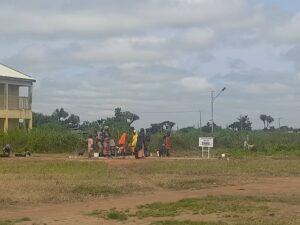
NEPTUNE PRIME recalls the minister of Humanitarian Affairs and Poverty Alleviation, Dr Betta Edu, revealed on 3rd September 2023, that no fewer than 8.3 million Nigerians are in dire need of humanitarian assistance in Borno, Yobe, and Adamawa. According to the minister, about 16 million Nigerians are affected by various humanitarian crises, with the three states – Borno, Yobe, and Adamawa – worst hit.
But there could be yet another major crisis that looms as many in Adamawa including the IDPs are unable to access reasonable medical care due to the inefficiency and incompetence of the Primary Health Centres (PHCs) in the State, which potentially put their health and well-being at the worst risk possible.
The Implications of lack of adequate healthcare for IDPs in Adamawa and Nigeria in General
The implications of inadequate healthcare facilities are enormous, such that put people’s lives in Nigeria and the IDPs in Adamawa in grave danger. Because, no one can tell whether or not these categories of people (IDPs) have any major illnesses, except probably the day it knocks them down completely, as the Primary Healthcare Centres in Adamawa (PHCs) lack major equipment/machines to do routine screening that could potentially dictate if the people have certain major illnesses like cancer, kidney, heart diseases, etc.
For instance, having PHCs who are only able to run certain minor laboratory tests for malaria and blood pressure of patients calls for serious concerns as the people may be down with other major health issues without them knowing.
NEPTUNE PRIME recalls that a recent new study reveals doctors’ blood pressure measurements could miss other major health complications and their connections to cardiac and kidney disease, stroke, obesity, and genetics. The findings of the research were presented at the American Heart Association’s hypertension scientific session in Boston on September 7, 2023.
So, it is believed that the number of people who may already have terminal illnesses or other major health issues abounds although the specific numbers are not known yet. But if a routine health check is to be carried out, it will be alarming what the findings would be.
Again, because of the number of unqualified health practitioners who are littered in Adamawa and other Primary Health Centres (PHCs) in Nigeria, it is certain that these unqualified health workers will not know how to take a blood pressure reading accurately, let alone understand the readings which would lead to other critical inquiries that should ascertain nearly or exactly what is wrong with a patient from time to time.
The Supposed Efforts of Adamawa State Government and Notable Concerns
While it is laudable to note that in its effort to reduce the mortality rate of women in Adamawa, the State Government has vaccinated young girls between the ages of nine and 14 years against the Human Papillomavirus (HPV) responsible for cervical cancer in women. The vaccine is safe and the most effective prevention against cervical cancer.
According to the Chairman of the state Primary Health Care Agency, Dr Suleiman Bashir, the exercise cut across the 21 local council areas of the state. “The HPV vaccination offers maximum protection, but women older than 15 years have to undergo screening before they get vaccinated,” he added.
NEPTUNE PRIME reports that there is no doubt that the Government at all levels can truly reach its people if it needs to and equally desires to reach them. Nevertheless, having functional primary healthcare is one of the major ways the Government can impact its people positively, so, what is the Government doing in empowering the community workers at all levels with training and retraining?
The IDPs and other impoverished Nigerians are always down with malnutritulceulcerser, and many health issues because of the type of environment they live in, the least they deserve is being able to access the primary healthcare centers whenever they need to do so, hence the importance of the government to begin to act accordingly as it is supposed to be “…by the people and for the people.”
The Nigerian Government at all levels should rise as a matter of urgency to its responsibility and stop leaving the task of reaching out and tending to its people for the donor agencies, as this report reveals.
Understandably, donor agencies support the Government of Nigeria in the area of strengthening the primary health care system by providing food, drugs, basic amenities, etc. for the IDPs and other categories of people. However, there is a need for more humanitarian assistance in these areas.
The donor agencies should also begin to checkmate to ascertain whether or not their help gets to the people eventually. How and when their help gets to them.
While it is comprehensible the lag in Nigeria is mostly due to underfunding of the health sector in general and not just as it relates to Primary Healthcare Centres (PHCs).
It should be noted that this year (2023), Nigeria allocated only 1.58 trillion naira ($2 billion) to the entire sector, less than 10 percent of the overall budget. Like some of its neighbors, this amount falls short of the commitment made by African leaders at the 2001 Abuja Declaration to allocate 15 percent of its annual budget to the health sector.
READ ALSO: The Tale of Shuwari IDP Camp: A Decade of Resilience amidst Boko Haram Insurgency
But what eventually becomes the fate of the IDPs and other Nigerians who rely heavily on the centres for their minor health checks let alone in the event of cases of terminal illness? How would they handle such?
What is the Government of Nigeria doing about the outbreak of cholera and diphtheria diseases that are also being reported to be claiming the lives of the people in different parts of the country?!
Straightforwardly, NEPTUNE PRIME establishes that to any hungry person anywhere in the world, FOOD would most likely come first on their ‘hierarchy of needs’, followed by SHELTER, WATER, a GOOD ENVIRONMENT, DRUGS, ELECTRICITY, and other basic needs along with having other meaningful engagements like vocational or technical skills training that would make anyone’s life count.
By way of bringing this report to an end, it is important to reiterate that the above needs are basically what the IDPs in Adamawa require alongside having functional primary healthcare centers to tend to the minor illnesses they are battling before they become terminal.
Ultimately, this report calls for your genuine interpretation of the whole situation narrated above on the present state of the Primary Healthcare Centres (PHCs) in Nigeria (not just in Adamawa); it solicits urgent intervention from the Government, the donor agencies, CSOs, private, corporate and multinational institutions alongside individuals and philanthropists to reach out to the IDPs in Adamawa, Yola State, and other States as we.
This report was completed with the support of the Centre for Journalism Innovation and Development (CJID) and the Open Society Foundations (OSF), so, they are highly appreciated.
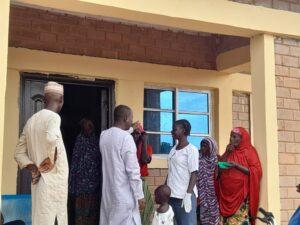
Chikaodinaka Vivian DANIEL writes from the FCT-Abuja, Nigeria. She is a graduate of political science with PGDs in journalism, business administration and communication; a writer (feature, investigative stories, etc.) and radio presenter. Email: vivianchikadaniel@gmail.com Tel: (+234) 08065269218
Follow the Neptune Prime channel on WhatsApp: https://whatsapp.com/channel/0029Va74ZvU2v1IqKByXoX3d
Do you have breaking news, interview request, opinion, suggestion, or want your event covered? Email us at neptuneprime2233@gmail.com

